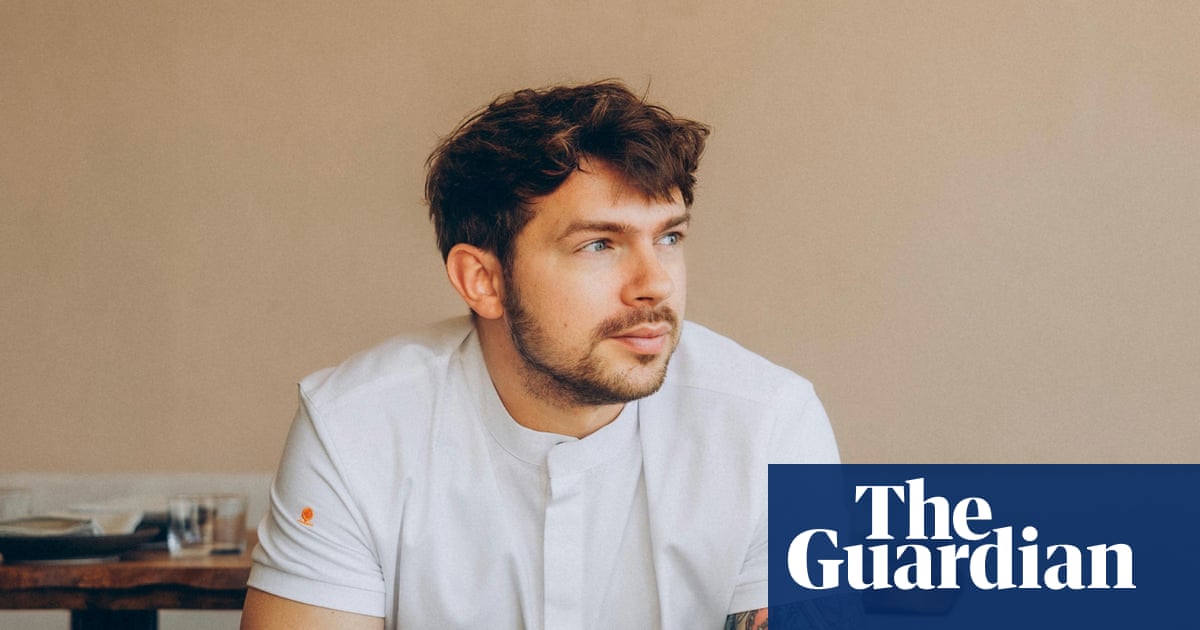Every chef longs to open their own restaurant so, when I did, it felt like a dream. I had been away working in some of the best restaurants in Europe. My business partner had a great spot for a restaurant in the centre of Dnipro, my home city in Ukraine, and we opened to rave reviews. My team and I were all a similar age and we had a shared vision: to create modern Ukrainian food.
But by February 2022, just three months later, we knew war with Russia was likely. I was already in touch with friends in the army and, if Russia invaded, I knew I would fight. When the war started, all the team gathered in the restaurant and I said I would understand if anybody wanted to leave Dnipro and move west, where it was safer, which lots of people were doing. Nobody wanted to. We decided that anyone who wasn’t going to join the army would keep the restaurant going. The team started cooking for hospitals and the national guard, and making up food packs for people who needed them.
The war was a massive shock for us, but it was also a time when everyone pulled together. Suppliers were helping – they would call and say: “We’ve got 10kg of sweet potato, do you want them?” You would put a message on the group chat with other restaurants and bars saying you’d had a request to feed 400 people. Other restaurants in the city would give or swap food. Everyone was sharing – it was a new way of operating.
A few months later, when it was clear we would have to live with this new reality of war, the restaurant reopened to customers again. People still wanted this aspect of normality but they wanted it to be quick. Any time sirens would warn of missile attacks, staff invited people to the restaurant’s cellar, which we had turned into a shelter, and they would take their plates and a glass of wine downstairs.
All this time, while I had been away in the army, my team was keeping me informed. I missed them and the restaurant, and I was glad they could keep it going, but I wasn’t focused on my business; I was focused on the war. I was sent to the Kyiv region to begin with. It was confusing – you would look at the sky and not know if the drone or plane flying over was yours or the Russians’. We were watching YouTube videos of how to operate the anti-tank missiles. We would do whatever needed doing on that particular day: reconnaissance, flying drones, holding a position, rescuing another unit. It was stressful and sometimes frightening.
Everyone knew I was a chef and I started advising army cooks on what to put in dishes. When our unit was sent north to Kharkiv, we would stay in small groups in abandoned houses. I’d find tins of anchovies or bottles of wine, or pick edible flowers and herbs we found growing in gardens, such as rosemary and sorrel. Cooking together and sharing food became an important part of our days.
In the downtime, I would think up recipes and keep notes, always thinking one day I would be back in a restaurant. In late 2023, I met Polina Sychova, who would become my new business partner; she was planning to open a Ukrainian restaurant in London, and she wanted me to be involved. I didn’t want to leave the men in my unit – for a year and a half, we had lived together, fought together, eaten together – but they encouraged me to follow my passion.
The guys I had been living and fighting alongside joked that they were glad I was going, because they were sick of hearing me talk about food. My commander agreed that I should go, and helped get me all the authorisation documents I needed to leave. I’m still in touch with my unit every week.
I opened a restaurant, Sino, in London in May this year, and the kitchen team is almost all Ukrainian. I had fought on the battlefield but I felt I could have a different mission. Cooking is a form of soft power – I also work with our embassy and with the Ministry of Foreign Affairs in Ukraine, consulting on how to promote Ukrainian food culture and cuisine on an international level.
Being in an army unit taught me a lot about the discipline of running a kitchen, and about life in general. Fighting and living through war means you have a good perspective on what real problems look like. It’s not a problem if we are running out of walnuts, or if we break one of the expensive plates – in the scheme of things, it doesn’t matter. Before, I could be angry or emotional, and a perfectionist, but war taught me to value what is really important in life.
As told to Emine Saner.
